Clearer food labelling and increased veterinary involvement seen as key to meeting consumer demand for improved food chain transparency. The veterinary profession has just as important a role to play in promoting high farm animal welfare to the consumer as it does in helping to drive improvements on farm. This was one of the main messages delivered to the veterinary profession at the sixth Boehringer Ingelheim Expert Forum on Farm Animal Well-Being in Bilbao, Spain.
Nearly 100 vets attending the forum were advised that clearer food labelling and greater involvement by vets in the farm auditing and advisory process would help meet growing consumer demands for transparency in the food chain.

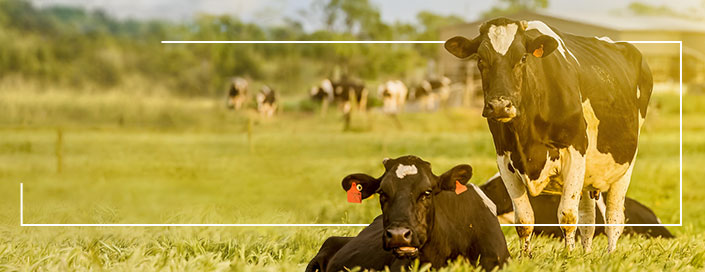
Because farm animal
well-being works.
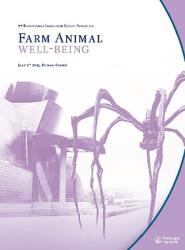
6th Expert Forum on Farm Animal Well-being, Bilbao (Spain), 2013
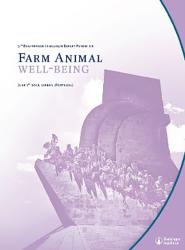
5th Expert Forum on Farm Animal Well-being, Lisboa (Portugal), 2012
On June 1st 2012, Boehringer Ingelheim Animal Health hosted the 5th Farm Animal Well-Being Forum which brought together industry experts on animal health, pain and behaviour from around the world. The two topics discussed in detail were culling and pain at parturition. A number of speakers looked at the issues surrounding culling and whether it is a welfare issue. The second half of the meeting looked at how painful parturition is to farm animals.
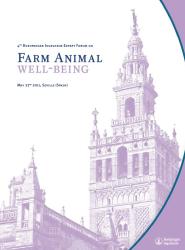
4th Expert Forum on Farm Animal Well-Being, Sevilla (Spain), 2011
Aware of the fact that animal welfare has become a salient issue, Boehringer Ingelheim held its 4th International Expert Forum on Farm Animal Well-Being on 27th May in Seville. The meeting was attended by some 100 participants from 14 different countries and was divided into three sections with a total of nine presentations. This year’s edition also saw the announcement of an upcoming website dedicated to the Forum. The Forum’s presentations showed that there is an urgent need to raise farmers' awareness of basic and easy-to-implement guidelines for interaction with their animals and to communicate these guidelines directly to the farming community.
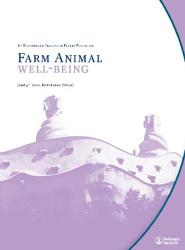
3rd Expert Forum on Farm Animal Well-being, Barcelona (Spain), 2010
Boehringer Ingelheim held its 3rd International Expert Forum on Farm Animal Well-Being in the heart of historical Barcelona. Some 100 participants from 10 different countries and a variety of scientific disciplines attended the meeting, including welfare scientists, behaviourists, veterinarians and representatives from the livestock industry. The forum’s practical approach and the speakers’ different fields of expertise allowed participants actively to engage on two of the driving forces behind welfare concerns: ethics and economics. The question-and-answer session offered a forum for interactive debate and revealed a potential gap between the opinions of some welfare experts and those of farmers.
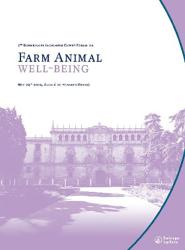
2nd Expert Forum on Farm Animal Well-being, Alcalá de Henares (Spain), 2009
Boehringer Ingelheim Animal Health held its 2nd International Expert Forum on Farm Animal Well-Being in Alcalá de Henares, Spain. Over 80 participants from ten different countries and a variety of fields attended the meeting, including welfare scientists, behaviourists, veterinarians and representatives from the livestock industry. This diversity of backgrounds encouraged a multidisciplinary exchange of ideas.
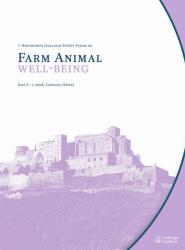
1st Expert Forum on Farm Animal Well-being, Cardona (Spain), 2008
Experts from around the world gathered recently in Cardona, Spain for the world’s first Farm Animal Well-being expert forum, organised by Boehringer Ingelheim. With speakers from institutions such as Iowa State University, Massey University, Universidad Autónoma de Barcelona, University of Guelph, Bristol University and others, the gathered delegates were updated on welfare studies from around the world.
The forum was presented in three main sections, as well as an introductory keynote speech by Professor Suzanne Millman of Iowa State University. These sections covered ‘how to read animal signals; assessing pain and discomfort’, ‘expressing the need for more education and awareness’ and ‘improved animal well-being is rewarding’.